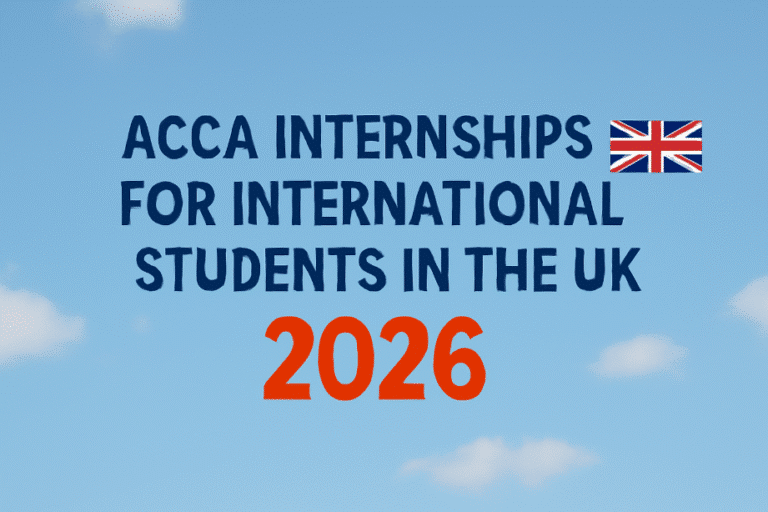11 Best Internships for Law International Students in the USA 2025
Internships: A Crucial Step for Law Students
For law students, internships are more than just a line on a resume—they’re a vital stepping stone to a successful legal career. These experiences provide hands-on exposure to the practical aspects of law, helping bridge the gap between academic knowledge and real-world application. For international students, internships offer an additional layer of value, providing insight into the U.S. legal system and professional culture.
Unique Challenges for International Students
While internships are beneficial, international students face distinct hurdles. These include navigating complex visa regulations, overcoming potential language barriers, and adapting to unfamiliar legal systems and cultural norms. Despite these challenges, the rewards of interning in the U.S. legal sector can be substantial, offering unparalleled exposure to one of the world’s most dynamic legal environments.
The U.S. Legal Internship Landscape
The United States boasts a diverse array of internship opportunities across various legal sectors. From prestigious law firms to non-profit organizations, government agencies to international bodies, the options are vast. These internships vary in duration, compensation, and focus areas, catering to different interests and career goals within the legal field.
Top Law Firms and Institutions Offering Internships for International Students

1. American Bar Association (ABA)
- Program: ABA International Law Fellowship Program
- Requirements:
- Enrolled in an ABA-approved law school
- Completed at least one year of law school
- Strong interest in international law
- Duration: 8-10 weeks (summer)
- Application Timeline: November 1 – January 15
- Additional Info: Unpaid, but offers a stipend
2. White & Case LLP
- Program: White & Case LLP Global Summer Program
- Requirements:
- 2L students (second year of law school)
- Excellent academic credentials
- Fluency in English and preferably one other language
- Duration: 10 weeks (summer)
- Application Timeline: August 1 – January 15
- Additional Info: Paid internship, potential for full-time offer
3. United Nations (UN)
- Program: UN Internship Programme
- Requirements:
- Enrolled in a graduate-level degree program
- Proficiency in English and/or French
- No more than one year since graduation
- Duration: 2-6 months
- Application Timeline: Ongoing (check website for specific openings)
- Additional Info: Unpaid, but provides valuable international experience
4. International Criminal Court (ICC)
- Program: ICC Internship and Visiting Professional Programme
- Requirements:
- Recent law graduate or current law student
- Fluency in English or French
- Strong academic background in international law
- Duration: 3-6 months
- Application Timeline: Three application cycles per year (check website)
- Additional Info: Unpaid, offers a unique experience in international criminal law
5. Fragomen, Del Rey, Bernsen & Loewy, LLP
- Program: Fragomen, Del Rey, Bernsen & Loewy, LLP Summer Associate Program
- Requirements:
- 2L students
- Interest in immigration law
- Strong academic credentials
- Duration: 10 weeks (summer)
- Application Timeline: September 1 – January 31
- Additional Info: Paid internship, focuses on immigration law

6. Human Rights Watch
- Program: Human Rights Watch Legal Internship
- Requirements:
- Current law students or recent graduates
- Strong research and writing skills
- Commitment to human rights
- Duration: 10-12 weeks (flexible)
- Application Timeline: Varies by office location (check website)
- Additional Info: Unpaid, offers exposure to international human rights law
7. World Bank Group
- Program: World Bank Group Legal Internship Program
- Requirements:
- Enrolled in a graduate-level law program
- Specialization in areas relevant to World Bank operations
- Fluency in English; knowledge of other languages is a plus
- Duration: Minimum 4 weeks
- Application Timeline: Ongoing (check website for openings)
- Additional Info: Paid internship, focuses on international development law
8. Baker McKenzie
- Program: Baker McKenzie Summer Associate Program
- Requirements:
- 2L students
- Strong academic record
- Interest in international law
- Duration: 10 weeks (summer)
- Application Timeline: August 1 – January 31
- Additional Info: Paid internship, global law firm experience
9. Earthjustice
- Program: Earthjustice Legal Internship
- Requirements:
- Current law students
- Strong interest in environmental law
- Excellent research and writing skills
- Duration: 10-12 weeks (summer) or part-time during academic year
- Application Timeline: Varies by office and season (check website)
- Additional Info: Paid internship, focuses on environmental law
10. International Labour Organization (ILO)
- Program: International Labour Organisation Internship Programme
- Requirements:
- Enrolled in final year of law school or graduate studies
- Knowledge of ILO fields of activity
- Fluency in English, French, or Spanish
- Duration: 3-6 months
- Application Timeline: Ongoing (check website for openings)
- Additional Info: Unpaid, offers experience in international labor law
11. Lawyers Without Borders
- Program: Lawyers Without Borders Law Student Internship
- Requirements:
- Current law students
- Interest in human rights and rule of law
- Strong research skills
- Duration: Flexible (summer or during academic year)
- Application Timeline: Rolling basis (check website)
- Additional Info: Unpaid, remote work possible
Understanding the Basics
Types of Legal Internships
Summer Associate Programs: Typically offered by large law firms, these programs often lead to full-time job offers.
Public Interest Internships: Focus on non-profit or government work, often in areas like human rights or environmental law.
Judicial Internships: Provide experience working with judges, offering insight into the court system.
Corporate Legal Department Internships: Offer exposure to in-house legal work in various industries.
Visa Requirements
Most international students pursue internships under their F-1 visa using Curricular Practical Training (CPT) or Optional Practical Training (OPT). It’s crucial to consult with your university’s international student office to understand specific requirements and limitations.
Paid vs. Unpaid Internships
Paid Internships: Often offered by large law firms and some corporations. These provide financial support but may be more competitive.
Unpaid Internships: Common in non-profit and some government sectors. While they don’t offer monetary compensation, they can provide valuable experience and networking opportunities.
Legal Considerations: The U.S. Department of Labor has specific criteria for unpaid internships to ensure they’re legally compliant.
By understanding these basics, international law students can better navigate the internship landscape in the USA, setting themselves up for valuable experiences that can shape their future legal careers. Click here for more on Paid and Unpaid Internships
Preparing a Competitive Application
Crafting an Effective Resume
Your resume is your first impression. Tailor it to legal internships by highlighting relevant coursework, legal research skills, and any prior legal experience. Use clear, concise language and a professional format. Include any international experience or language skills, as these can set you apart.
Writing a Compelling Cover Letter
Your cover letter should complement your resume, not repeat it. Use it to express your motivation for the specific internship and organization. Demonstrate your knowledge of the firm or institution and explain how your background makes you a strong candidate. Keep it concise, typically no longer than one page.
Securing Strong Recommendations
Choose recommenders who know you well and can speak to your abilities relevant to legal work. Professors who have observed your analytical and writing skills or supervisors from previous legal experiences are ideal. Provide them with your resume and information about the internship to help them write targeted letters.
Developing Relevant Skills
Focus on honing skills valued in the legal profession:
Legal Research: Familiarize yourself with legal databases and research methodologies.
Legal Writing: Practice clear, concise writing in legal formats such as memos or briefs.
Language Proficiency: If English isn’t your first language, work on improving your fluency, especially in legal terminology.
Analytical Thinking: Develop your ability to analyze complex issues and present logical arguments.
Dealing with the Application Process
Researching Opportunities
Start your search early. Utilize resources such as:
- Your law school’s career services office
- Legal job boards and websites
- Professional legal associations
- Alumni networks
Create a spreadsheet to track potential opportunities, including application requirements and deadlines.
Meeting Application Deadlines
Many legal internships, especially at large firms, have early deadlines. Some begin accepting applications as early as August for the following summer. Create a timeline for each application, working backwards from the deadline to ensure you have time to prepare all materials.
Following Up on Applications
After submitting your application, wait about two weeks before following up if you haven’t heard back. Send a polite email reiterating your interest and asking about the status of your application. This shows initiative without being pushy.
Preparing for Interviews
Research the organization thoroughly before your interview. Practice common interview questions and prepare thoughtful questions to ask your interviewer. For international students, familiarize yourself with U.S. interview norms, which may differ from those in your home country.
Virtual Interviews: Given the increasing prevalence of remote work, be prepared for virtual interviews. Test your technology in advance and choose a quiet, well-lit location for the call.
By meticulously preparing your application and navigating the process strategically, you’ll significantly increase your chances of securing a valuable legal internship in the USA.
Making the Most of Your Internship As A Law Student

Setting Clear Goals and Expectations
Begin your internship with a clear vision of what you want to achieve. Schedule a meeting with your supervisor early on to discuss expectations, both theirs and yours. Set specific, measurable goals for your internship period. These might include improving certain skills, completing particular projects, or gaining exposure to specific areas of law.
Networking Within the Organization
Building professional relationships is crucial in the legal field. Take initiative to meet colleagues beyond your immediate team. Attend company events and join any intern social activities. Don’t limit yourself to other interns; seek opportunities to interact with attorneys at various levels. Remember, today’s colleague could be tomorrow’s job reference or employment lead. Read more on Networking Strategies to Unlock Internship Opportunities
Seeking Feedback and Mentorship
Regular feedback is essential for growth. Don’t wait for scheduled evaluations; ask for feedback after completing assignments. If your organization doesn’t have a formal mentorship program, consider asking an attorney you admire if they’d be willing to mentor you. Their guidance can be invaluable for your professional development and future career decisions.
Balancing Work and Cultural Experiences
While your internship is a professional opportunity, it’s also a chance to experience U.S. culture. Manage your time to excel in your work responsibilities while also exploring your surroundings. This balance will enrich your overall experience and provide talking points for future networking and job interviews.
Legal and Practical Considerations
Understanding Work Authorization and Visa Restrictions
As an international student, it’s crucial to understand and comply with your visa regulations:
F-1 Visa: Most international students use Curricular Practical Training (CPT) or Optional Practical Training (OPT) for internships.
J-1 Visa: Academic training provisions allow for internships.
Consult regularly with your university’s international student office to ensure compliance. Be aware of work hour limitations and any reporting requirements.
Housing and Living Arrangements
Start planning your living situation well in advance, especially for summer internships when housing can be competitive. Options to consider:
University Housing: Some schools offer summer housing for interns.
Short-term Rentals: Websites like Airbnb or Sublet.com can be useful.
Corporate Housing: Some larger firms may assist with housing arrangements.
Factor in the cost of living in your chosen city when budgeting for your internship period.
Cultural Adaptation and Professional Etiquette
Understanding U.S. professional culture is key to a successful internship:
- Punctuality: Being on time is highly valued in U.S. professional settings.
- Communication: Direct communication is often appreciated. Don’t hesitate to ask questions or seek clarification.
- Dress code: Observe and match the level of formality in your office.
- Work ethic: Show initiative and a willingness to take on additional tasks.
Remember, norms can vary between organizations. Observe your colleagues and when in doubt, ask for guidance.
By focusing on these aspects, you’ll not only fulfill your professional responsibilities but also gain a rich, well-rounded experience during your U.S. legal internship. This holistic approach will serve you well in your future legal career, whether in the United States or internationally.
Post-Internship Opportunities for Law Interns

Leveraging Internship Experience
Your internship is a valuable asset for future job prospects. Here’s how to capitalize on it:
Update Your Resume: Highlight key projects and skills gained during your internship.
Request a Letter of Recommendation: Ask your supervisor for a letter while your contributions are fresh in their mind.
Expand Your LinkedIn Profile: Add your internship experience and connect with colleagues you’ve met.
Use it in Job Applications: Draw on specific examples from your internship when applying for future positions.
Maintaining Professional Connections
Nurture the relationships you’ve built during your internship:
Send Thank-You Notes: Express gratitude to your supervisor and colleagues who’ve helped you.
Stay in Touch: Periodically reach out to your contacts with professional updates or relevant articles.
Attend Alumni Events: If your internship organization hosts events for former interns, make an effort to attend.
Offer Value: Look for opportunities to share useful information or connections with your network.
Exploring Further Study or Work Opportunities
Your internship may open doors to further opportunities in the U.S.:
LL.M. Programs: Consider pursuing an LL.M. to deepen your understanding of U.S. law.
Bar Exam: Research requirements for taking the bar exam in your desired state.
OPT Extension: If eligible, explore the possibility of extending your stay through Optional Practical Training.
Long-term Employment: Some internships may lead to full-time job offers. Be proactive in expressing your interest if this is your goal.
Conclusion
Internships for international law students in the USA offer invaluable experience and opportunities for professional growth. By understanding the landscape, preparing thoroughly, making the most of your internship, and leveraging your experience afterwards, you can significantly enhance your legal career prospects. Remember, each step of this journey contributes to your development as a global legal professional.











One Comment